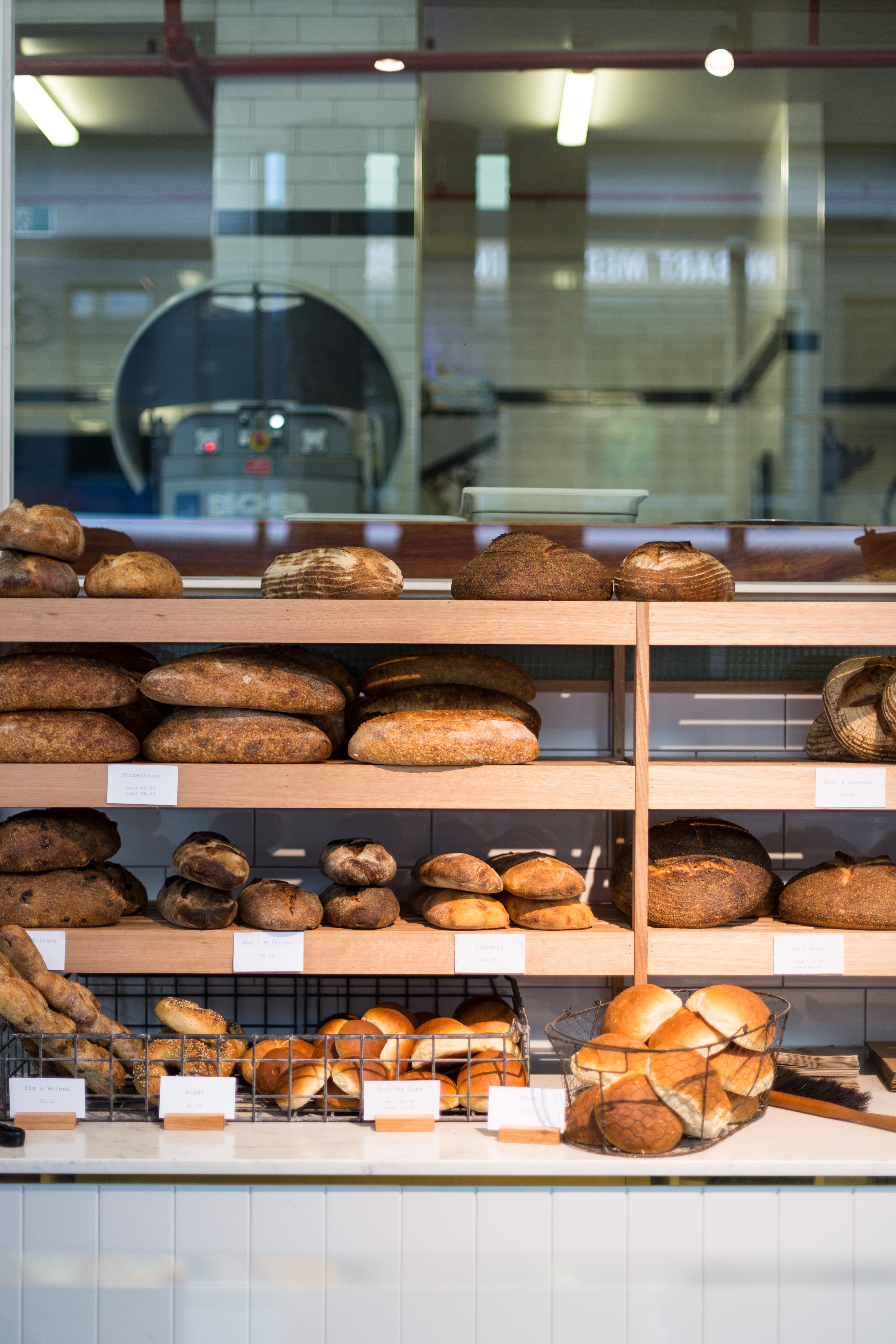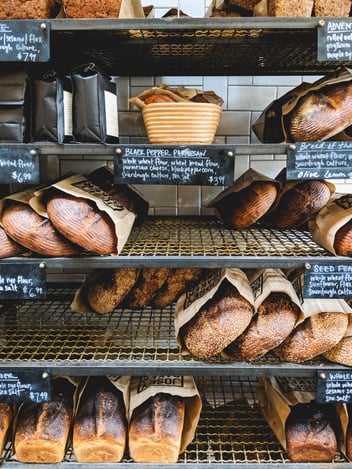3 Ideas to Cope with Wastage in a Bakery
Food waste in Australia is very high and tons of bread goes unsold every day. Here are three tips to help you solve wastage in your bakery.

In the food and beverage industry, tons of bread goes unsold every day. Local food rescue charity OzHarvest says that it is this food staple that is one of the most wasted ingredients in Australia.
Food waste in our country is incredibly high. In the Australian Commercial and Industrial (C&I) sector alone, more than 1.9 million tonnes of food waste is created every year, with retail businesses such as supermarkets and bakeries contributing to almost half of that. But as a bakery supplier there are many ways you can help stop this huge industry problem and cope with wastage in your own bakery. Here are three ideas:
1. TURN LEFTOVERS INTO OTHER BAKED GOODS
Repurposing can be your number one option if you’re eager to reduce wastage. At the end of each day, you can use your leftover loaves to make bread crumbs, croutons, bread pudding, and french toast. You can sell these to customers if your bakery also doubles as a cafe. In fact, many cake shops and bakeries in Australia practice this. Newtowns boutique patisserie Black Star Pastry, for example, turn their unsold baked goods into other delicious treats.
"Any sourdough bread that is not sold on the day is turned into things like toasties,” shares Black Star Pastry owner Christopher Thé. “Our leftover croissants are soaked in custard and baked into bread and butter puddings. You wouldn’t know they were made from leftovers, they are so good.”
Thé also makes sure he prevents wastage by organising farm visits so his team know where the raw ingredients they use at Black Star come from. His reasoning is sound, “The better appreciation our guys have of the care and attention it takes to grow and produce great food, the more likely they are to treat these products with respect and the less they waste” he says.
Meanwhile, in Brookvale, microbrewery 4 Pines Brewing Company gives surplus bread a new life by turning it into beer. They’ve teamed up with environmental consultant Edge Environment to brew a special beer using leftover bread from a local bakery. They got the idea from UK’s Toast Ale, which has been using surplus loaves as the key ingredient for their beers.
Now whilst turning leftover bread into other goods is a great strategy, you will obviously have baked products that can’t be repurposed. What you can do then, is give these goods to those who need them most - which brings us to tip number 2.
2. DONATE YOUR UNSOLD PRODUCTS
There are a lot of factors as to why bakeries end up with plenty of unsold baked products on their shelves - weather conditions, seasonality, the changing economy, to name just a few. But bakery suppliers like you don’t have to throw these leftovers away at the end of the day. You can donate them to charities, health care centres, nursing homes, and church food pantries. By doing this, not only will you reduce wastage in your food business, you can also ensure that your leftover products are put to good use.
Here in Australia, OzHarvest is one of the major organisations that's committed to donating leftover food to people in need. They are working with over 3,000 commercial outlets to collect quality excess food and deliver it to more than 1,000 local charities, free of charge. These charities include homeless shelters, youth groups, women’s and men’s refuges, and indigenous centres. SecondBite, FoodRescue, Fareshare, and Food Bank are other well-known food charities in the country that rescue quality surplus food and give it to those in need.
Overseas, there are also bakeries that donate their leftovers. Deerfields Bakery in Illinois gives their surplus baked goods to homeless shelters as well as nursing homes. Sweety Pies Bakery also in Illinois is doing the same thing. Their leftovers go to churches, schools, and synagogues. Even Starbucks is donating all of its unsold food to charities. According to the chain, they’ll have given away 50 million meals by the year 2021.
Aside from donating to the charities and other institutions, you can also give your leftover products to your staff, family, and friends. Or you can put them on sale the following day to cut down on wastage.
3. UTILISE BAKERY TECHNOLOGY TO REUSE YOUR LEFTOVERS
Technology has always been helpful in preventing and reducing waste in the food and beverage industry. If you aren’t able to donate your leftovers or turn them into other delicious treats, you can process them and mix them with regular animal feed. All with a little innovative help. U.S-based Enagon L.L.C, for example, has created a food-grade pressure wave interface mill that can dry and mill any solid waste and turn it into a fine powder.
“A baker could drop in a type of waste such as cookies, and the machine would dry it and grind it down into a fine powder,” said Jonathan Arkin, the regional sales manager of Arkin Sales, Inc., which represents Enagon.
You can also rework your leftovers and turn them into a value-adding ingredient. Bühler, Inc. has developed a unique rework technology that can shred, dry, and grind stale bread into fine particles. This process enables your leftovers to be converted into a storable raw ingredient that you can eventually add back to your recipe along with other dry ingredients. According to Bühler, "tests in the Bühler Bakery Innovation Centre have shown that adding rework bread to the recipe can have quite a positive effect on the end product."
Bakery suppliers wanting to keep their business’ doors open should understand that food waste is no joke. It’s one of the silent killers of a business as it chews up a lot of profits. When baked goods are wasted, all the efforts and resources you’ve used to produce them are also put to waste.
The three tips we’ve shared above are surefire strategies to deal with waste that you already have in your bakery. But keep in mind that prevention is still better than cure. If you want to cope with wastage and help stop the huge industry problem of food waste, you must prevent it before it happens. To do that, you can leverage technology like inventory management systems or utilise B2B ordering platforms that can sync with such systems. For example, Ordermentum.
Ordermentum is an ordering and payments app that can integrate with your favourite business tools so you can access your data anytime and anywhere. It can also take care of your most mundane tasks, such as invoicing and order processing, helping you reduce order cancellations and therefore, preventing food waste even further. You can contact Ordermentum today to find out the other ways we can help.
In the meantime, if you’d like to read more business advice like this, go to our blog.
Categories
Sustainability
Our insights team is made up of passionate writers, researchers, chefs, baristas, web developers, tech gurus, our Founders, and even an accountant. We keep a pulse on the Food & Beverage industry to bring you insights and research to help our industry trade smarter.







